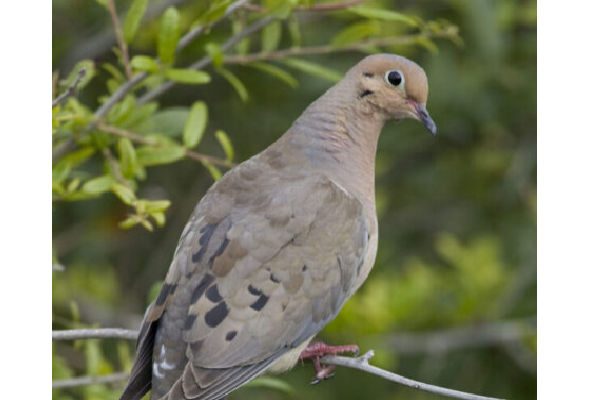Hunting season for doves begins Monday across North Carolina, and the overall flock health and migration both look to be excellent for this year.
The early season runs through Oct. 4. The middle season is Nov. 8-29, and the winter season is Dec. 16-Jan. 31.
The limit this year is 15 birds per day of a mixture of mourning and whitewing doves. Shooting begins 30 minutes before sunrise and ends at sunset daily, except for Sunday. Migratory fowl of any kind may not be hunted on Sunday in North Carolina.
Only shotguns may be used for dove hunting, and all repeating shotguns must be plugged to hold no more than two rounds in the magazine and one in the chamber.
Blaze orange is not required when hunting doves, but officials encourage the use of an orange outer garment while hunting any species.
Hunters are required to have permission form landowners to enter private property. Written permission is required if a property is posted with signs or purple paint markers as described in state law. Hunting doves from the roadside without permission of the adjoining landowner is prohibited. Hunters are not allowed to enter private property to retrieve game without the owner’s permission, and state law does not require landowners to allow a hunter to trespass
Officials said multiple complaints are received by the WRC every year from dove hunters sprinkling homes and vehicles with shot. Always ensure you know where your shot will fall, as even bird shot can cause injury at long range.
Any shared carcasses must be bagged separately with a note of the hunter, license number, and contact information.
As dove season coincides with the corn harvest, hunters are reminded to be careful to avoid hunting over baited fields.
Corn and other grains left as part of the normal farming process are not considered bait, but excessive amounts of food intentionally left in flight ways is baiting under state law, and subject to prosecution. Normal spillage or planting is not considered baiting. Reseeding areas affected by rain, however, can be considered baiting in some circumstances.
The Wildlife Resources Commission urges hunters to check fields before hunting, because anyone caught hunting over bait can be charged, even if they did not know the bait was in the area. The same rules for baiting apply to waterfowl and all migratory birds.
Baited fields have become more of a problem in the past few seasons, and WRC Enforcement Officers will be on the lookout for hunting over bait throughout dove and waterfowl seasons.
Other migratory bird seasons starting Monday include
King and clapper rails, Sept. 1-Nov. 20
Sora and Virginia rails, Sept. 1-Nov. 20
Gallinules and moorhens, Sept. 1-Nov. 20
Woodcock, Dec. 11-Jan. 31
Snipe, Oct. 28-Feb. 28
Resident Canada Goose, Sept. 1-30. Shooting may continue for 30 minutes after legal sunset for geese only. Unplugged guns and electronic calls are also allowed for the resident Canada Goose season.
Teal (east of U.S. 17) Sept. 11-30.
For other migratory waterfowl, go to https://www.ncwildlife.gov/migratory-game-bird-hunting-seasons.







